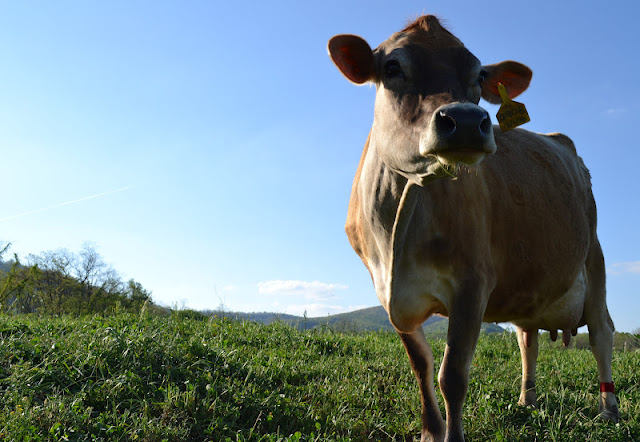Well, I have officially registered for my first semester of classes at Chatham. And I am excited, yes indeed.
In fact, I am so stupid with excitement about this that I've decided to post the course descriptions for next semester's classes up here, because of course everyone else wants to see what I'll be taking.... right?
The first two are core requirements for the curriculum; the third isn't strictly necessary, but counts towards my Applied Electives requirements... plus I just really want to take it.
Food Systems
Examines philosophical, sociological, economic, and cultural issues related to the production and consumption of food. From Agrarianism to the Green Revolution, explores the transformations of industrialization, technology, and migration. Provides foundation in food systems and commodity chains as concepts and methodological tools for uncovering the relationship between communities, agriculture, markets, and consumers.
Food Access
If food is a basic human right, how do societies create universal access to food? In this course, we explore the moral and ethical basis for making citizens food secure despite global inequality. Major topics include the relationship between food access, culturally appropriateness, nutrition, sustainability, and justice.
Growing Sustainably
Using Chatham’s Eden Hall Campus gardens as well as neighboring farms as a case study, students will integrate best practices for sustainable agriculture with theory and research analysis in the classroom. Topics will include basic principles of soil fertility, biodiversity, agriculture history, effects of both conventional and organic agriculture, and the politics surrounding the issues.
Growing Sustainably (Lab)
Through working on Chatham’s Eden Hall Farm as well as neighboring farms, students will integrate best practices for sustainable agriculture in ongoing projects. Lab component will include work with the western regional office of Pennsylvania Association for Sustainable Agriculture, farm-to-table initiatives, ongoing regional vermiculture* and composting, and garden market development and maintenance for a variety of community partners.
I'm still trying to decide what I want my track to be. The choices are Food Politics, Food Markets and Marketing, Communication and Writing, and Sustainable Agriculture. Talking to my adviser will probably be helpful in this respect. I am very torn between Sustainable Ag, Food Politics, and Communication and Writing, but I'm hopeful that I can meld the requirements from various tracks to customize my own academic trajectory. Isn't that why I'm paying them all that money??
*Composting with worms! EXCITEMENT.




